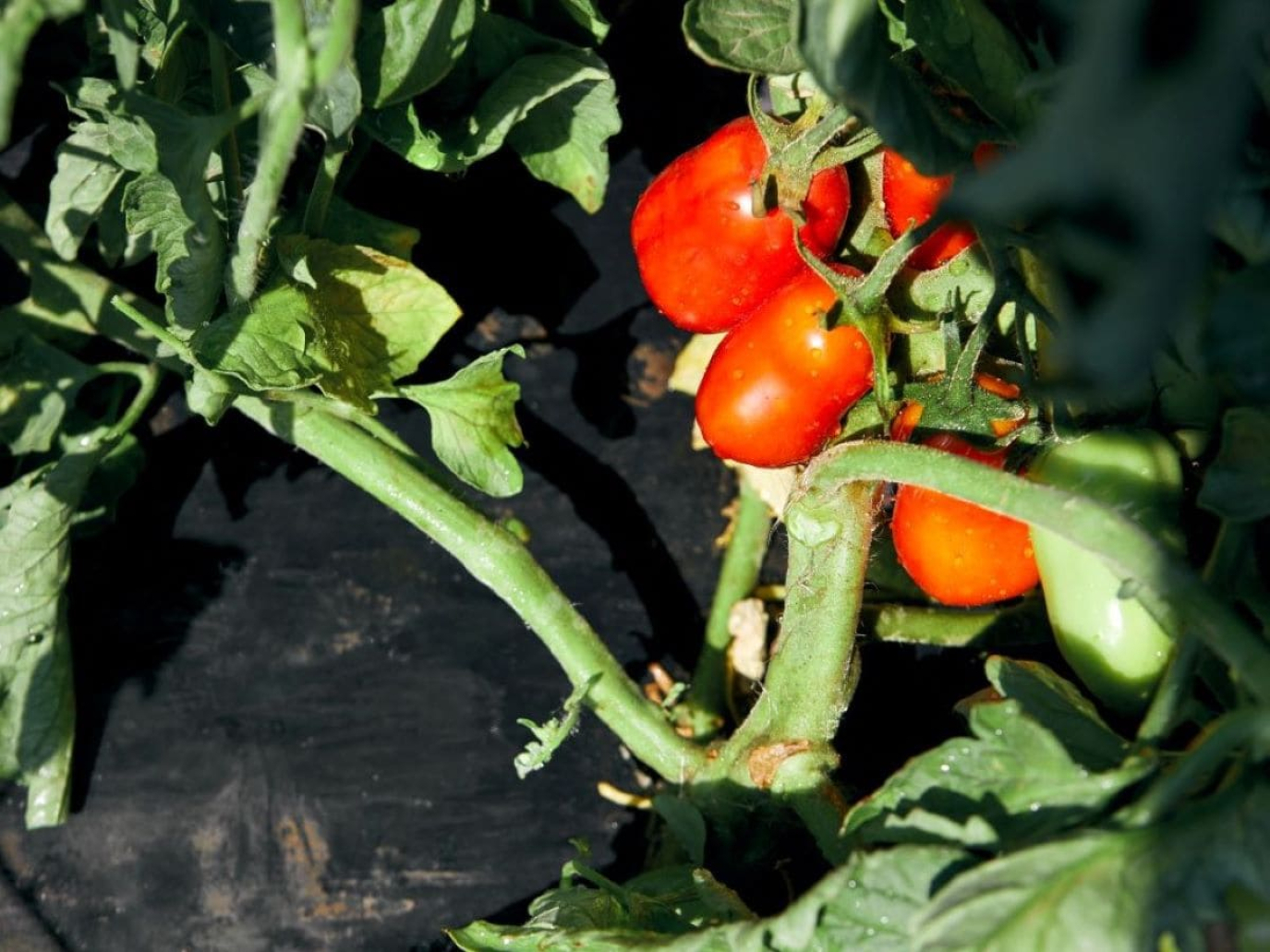This article is also available in Italian / Questo articolo è disponibile anche in italiano
Although vital for certain purposes, some plastics used in farming can be sources of micro and nano-plastics (MNP) that can accumulate in the soil over time, being absorbed into the biota or transported into adjacent receptor sites. However, getting rid of them in their entirety is not possible. According to an article in Nature - Communications Earth & Environment from 2023, 12.5 million tonnes of plastic are used in farming per year. Uses include mulch film and ropes, with dissolved plastics also being dispersed using herbicides, pesticides, and drip irrigation.
The benefits of some applications are well-known. In China, for example, without the use of mulch film, an additional 3.9 million hectares of arable land would be needed to produce the same amount of food. Mulch film is also widely used in organic farming because it helps suppress weed infestation without having to resort to synthetic products.
An alternative solution, however, can come from the circular bioeconomy. For years, Novamont – an international leader in the bioplastics sector and the development of renewable bioproducts and biochemicals – has been working to revolutionise various farming products using its top-of-the-line material, Mater-Bi. This bioplastic is soil-biodegradable and compostable both industrially and through home composting, in compliance with the main European and American standards (UNI EN 13432, EN 17033, ASTM 6400 and ISO 23717:2021). Mater-Bi does not release long-lasting microplastics into the environment, does not have eco-toxic effects, and is biodegradable even at low temperatures. These features make it a perfect material for the farming sector.
Biodegradable mulch film for farming
The first product Novamont has marketed to the farming sector is mulch film made from Mater-Bi. The market for this product is huge: current volumes for plastic film used in farming in Europe are around 772,000 tonnes, a considerable proportion of which are used in Spain (93,000 t/year), Italy (89,500 t/year), and France (57,500 t/year). The key benefit of Novamont’s mulch film, which is soil-biodegradable, is that it can be left in the ground. Here, they are converted by microorganisms into carbon dioxide, water, and biomass, with no negative effect on the land, with no soil removal, and avoiding the production of waste.
They are available in various formats, most commonly with a width between 10 and 15 μm and in various colours (black, black/white, transparent): standard materials for spring/summer vegetable cycles, materials for rice farming and for long periods, materials for organic farming with a higher renewable content. The biodegradable mulch film has been incorporated into the 2023-2027 CAP documents of several EU member states (Spain, Portugal, Italy), among the proposed climate-friendly farming measures for vegetable producers.
“I was one of the first to distribute Mater-Bi mulch film for melon, courgette, pepper, and artichoke farming,” says Franco Pelullo, from farming supplies company Linea Verde. “Various farmers highlighted that they avoided weeding and improved seeding productivity.” What remains to be seen is how quickly the world of farming will be able to adopt Novamont’s product.
Clips and more
In addition to mulch film, biodegradable and compostable twine and clips made from Mater-Bi are also on the market. These are used to easily tie crops such as tomatoes and vines to posts and frames, avoiding the dispersal of plastic waste. These clips and twine, being fully compostable, can be disposed of through composting, simplifying biowaste treatment, reducing environmental impacts, and optimising work times, since the collection and separation that would otherwise be needed with traditional products can be avoided.
The products have recently been tested, for a year, in the Experimental Fields located in El Ejido (Almería, Spain), an important Bayer CropScience hub for the study and greenhouse reproduction of vegetable crops. “We are proud that our solutions have been used successfully in the Bayer CropScience trials and that they can help farmers all over the world to improve the sustainability of their production, while also improving soil health,” said Marco Pecchiari, Head of Ecology of Product and Environmental Communication at Novamont S.p.A.
“Over the course of a year, we successfully used biodegradable and compostable Mater-Bi twine and clips for trellising crops across 80 hectares in our experimental fields,” adds Alejandro Caravaca, EMEA Head of Veg R&D, Sustainability and Outreach at Bayer CropScience. “The twine and clips met the requirements for strength, resistance, and flexibility for the duration of the entire growing cycle. These innovative solutions enable the composting system to treat green waste together with the Mater-Bi twine and clips, without contaminating the resulting compost.” Novamont’s work, however, is far from over. New farming applications will soon be announced, with important benefits for the environment and end-of-life product management.
This content is produced thanks to the support of sponsors
Image: Novamont



